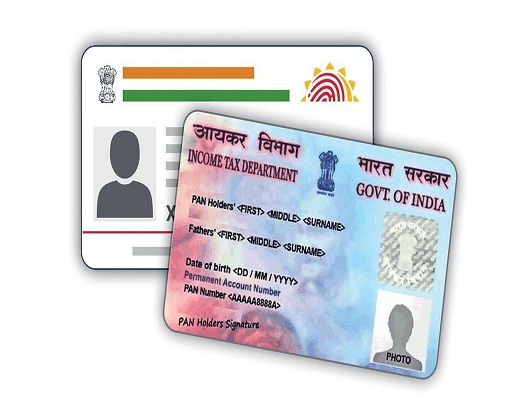Here are some important things to know about the latest changes in the rules applicable to Aadhaar and PAN:
1.Filing of Income Tax Return (ITR) with Aadhaar
Individuals not having a PAN will be able to quote Aadhaar instead while filing their income tax returns, as announced in the Budget. The government has said that Aadhaar will be accepted interchangeably with PAN under the Income Tax Act.
2.Cash transactions above Rs. 50,000
Therefore, those making payments above Rs. 50,000 in cash of any purchase against a bill at any one time will be able to quote Aadhaar – or the 12-digit Unique Identity Number (UID) instead of PAN. Currently, furnishing of PAN is mandatory for such dealings as per income tax rules.
Besides, payments above Rs. 50,000 in cash in connection with travel to any foreign country or payment for purchase of any foreign currency at any one time currently require furnishing of PAN.
Also, such payments to a mutual fund for purchase of units, a company/institution for buying debentures/bonds, and the RBI for acquiring bonds also require PAN at present.
3.For Opening a Demat Account
PAN is a must for the opening of a Demat account. Hence, Aadhaar will be accepted for opening such an account with a depository, participant, custodian of securities or any other person with market regulator Sebi.
4.Buying Property above Rs. 10 Lakh
Those purchasing immovable property worth more than 10 lakh will also be able to quote Aadhaar instead of PAN. Currently, furnishing of PAN is mandatory for property transactions above Rs. 10 lakh.
5.Car Sale/Purchase
Currently, sale or purchase of a motor vehicle other than two-wheelers requires mandatory furnishing of PAN. Therefore, quoting of Aadhaar will be allowed interchangeably with PAN in this case as well.
6.Application of Debit/ Credit Card
Instead of PAN Aadhaar will also be accepted while applying for a credit or debit card.
7.Aadhaar for NRIs
In its Budget, the government has also proposed to consider issuance of Aadhar card to NRIs with Indian passports on arrival in the country without a mandatory waiting-period of 180 days.

